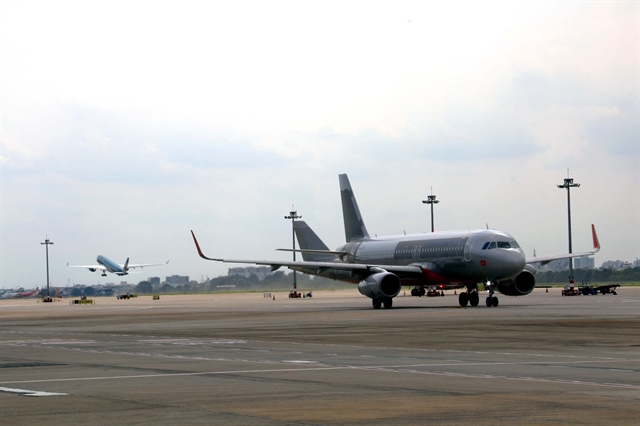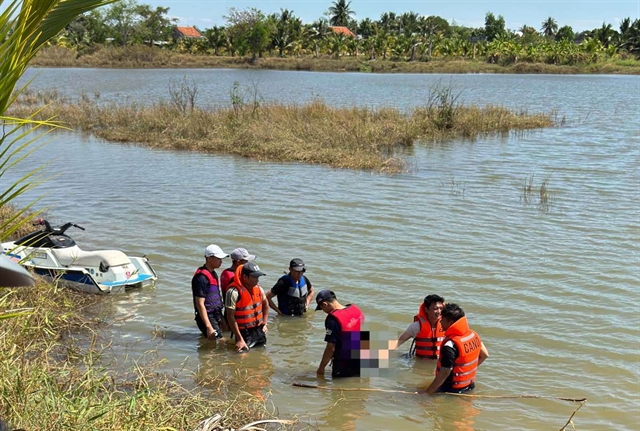 Society
Society

 |
| An airplane lands in Tân Sơn Nhất International Airport in Hồ Chí Minh City. VNA/VNS Photo |
HÀ NỘI — Việt Nam will have a total of 30 airports by 2030 including 14 serving international flights, according to a draft plan that the Civil Aviation Authority of Vietnam (CAAV)has submitted to the Ministry of Transport recently.
The international airports are Vân Đồn, Cát Bi, Nội Bài, Thọ Xuân, Vinh, Phú Bài, Đà Nẵng, Chu Lai, Cam Ranh, Liên Khương, Long Thành, Tân Sơn Nhất, Cần Thơ, and Phú Quốc.
The 14 airports serving only domestic flights are Lai Châu, Điện Biên, Sa Pa, Nà Sản, Đồng Hới, Quảng Trị, Phù Cát, Tuy Hòa, Pleiku, Buôn Ma Thuột, Phan Thiết, Rạch Giá, Cà Mau, and Côn Đảo.
Two military airports – Thành Sơn and Biên Hòa – will be converted to use for both military and civil purposes.
The draft plan still includes the Hải Phòng International Airport project which was approved in the Prime Minister’s Decision No. 640/QĐ-TTg dated April 28, 2011.
By 2050, Việt Nam expects to have 33 airports including 14 international airports Vân Đồn, Hải Phòng, Nội Bài, Thọ Xuân, Vinh, Phú Bài, Đà Nẵng, Chu Lai, Cam Ranh, Liên Khương, Long Thành, Tân Sơn Nhất, Cần Thơ and Phú Quốc. There will also be 19 domestic airports (Lai Châu, Điện Biên, Sa Pa, Cao Bằng, Nà Sản, Cát Bi, Đồng Hới, Quảng Trị, Phù Cát, Tuy Hòa, Pleiku, Buôn Ma Thuột, Phan Thiết, Rạch Giá, Cà Mau, Côn Đảo, Biên Hòa, Thành Sơn and the second airport in the southeast, south region of Hà Nội).
CAAV will continue to study, survey, and evaluate the possibility of converting some existing military airports into dual-use facilities including Yên Bái airport in Yên Bái Province, and Gia Lâm airport in Hà Nội. The conversion will be reported to the Prime Minister for consideration when all necessary conditions are met.
In particular, this draft plan reflects CAAV’s openness to the new civil airports.
The agency proposes to continue studying, surveying and evaluating the possibility of building airports in provinces that are located in key positions in defence and security and with potential for tourism development but have no military airport. These are Hà Giang, Tuyên Quang, Hà Tĩnh, Kon Tum, Quảng Ngãi, Bình Thuận, Khánh Hòa, Đắk Nông and Tây Ninh.
The Transport Engineering Design Incorporated (TEDI) – consultant for the national airport development planning – proposes that the capacity of Long Thành airport by 2030 is 25 million passengers per year. The capacity of Long Thành airport would then increase to 100 million passengers by 2050. The Tân Sơn Nhất airport is to have a maximum capacity of 50 million passengers yearly.
Biên Hòa airport is expected to handle five million passengers yearly by 2030, and up to ten million passengers by 2050. — VNS




